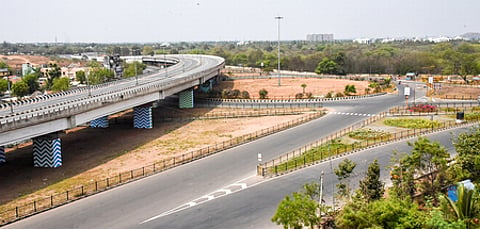

NEW DELHI: With many of the national highways aging, the Ministry of Road Transport and Highways (MoRTH) is considering ‘white-topping’ for their rehabilitation and strengthening, primarily for expansion of the life span of the roads and keeping them pothole-free.
According to officials, the policy regarding the use of the technology is at the finalsation stage and the ministry has sought feedback from stakeholders — including agencies that maintain and develop roads across states — by the first week of September.
White-topping technology is the covering of an existing asphalt pavement with a layer of Portland cement concrete (PCC). It also prevents structural cracks and rutting. Unexpected increase in traffic loading, poor maintenance, or improper drainage conditions aggravate the rate of deterioration of ‘flexible pavements’, the technical parlance used for roads. Rutting of bituminous pavement is a major issue in the country, given the hot climate with high frequency of heavy truckloads.
At present, the total length of national highways in the country is approximately 1.5 lakh kilometres. As per an estimate of the ministry, as two-, four- and six-lane national highways and expressways are being built, the quantum of aged assets is increasing, which warrant rehabilitation to extend their life further.
Officials say that white-topping extends the lifespan of roads by 20-25 years and it also has a durable wearing course in high rainfall areas. The other advantage of the white-topping concrete is that it is relatively light in colour, and hence the surface is more reflective, absorbs less heat and reduces the urban heat island effect.
“Improved reflection of lights from vehicles enhances safety, lowers energy requirement of external lighting; lower contribution to heat in environment, and fuel consumption on concrete roads has been found to be less than the bitumen roads,” said the ministry.
The technology is, at present, being used to rehabilitate state roads and some stretches of national highways. Many projects have been executed in Pune, Mumbai, Delhi, Nagpur, Jaipur and Bengaluru successfully.
In its 2022 report on white-topping technology, National Rural Infrastructure Development Agency under the Ministry of Rural Development (MoRD) had noted that its performance on sections has been found to be satisfactory. The report of MoRD states that concrete overlays technology have been used to rehabilitate both the existing bituminous (flexible) pavement since 1918 and existing concrete pavement since 1913.